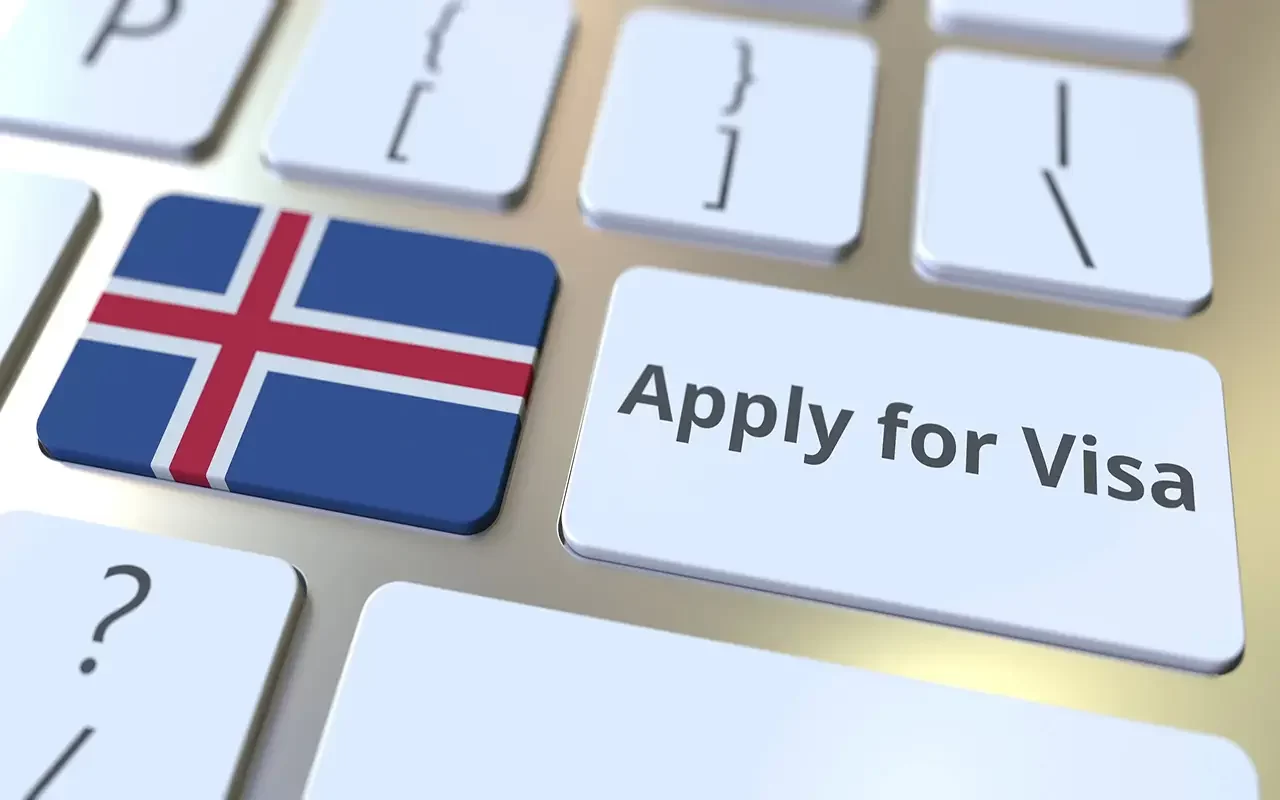
Table of Contents
Overview of Iceland
A Nordic island nation in the middle of the Norwegian sea, Norway is Iceland’s nearest neighbor at about 1629 km across the waves. Its official language is Icelandic, but the majority of its population of 364,000 people speak English. Despite its small size and remote location, Iceland attracts an average of 2 million visitors a year-more than 6 times its population size. Travelers come from all over to experience Iceland’s otherworldly landscape of towering glaciers, dramatic geysers and rugged coastline. A top destination for adventure tourism, thrill seekers can explore Iceland’s three national parks, climb its active volcano, and scuba dive the famed Silfra Fissure, where the Eurasian and North American tectonic plates meet. The whale watching capital of Europe, animal lovers can also ride Icelandic horses through its fairytale countryside sprinkled with waterfalls. The most famous of these, the Dettifoss, is a destination in its own right as the second most powerful falls in Europe. For sights, nothing beats the northern lights, observable from October-February. Despite its name, Iceland is generally cold but not freezing; winter temperatures are 0 °C on average, while summer temperatures average a refreshingly mild 20 °C. Iceland’s extreme northern location means that the sun shines all day and night, from May to July, while darkness prevails for over 20 hours a day in the winter months. Iceland’s climate and topography have produced a spa culture across the country, where volcanic activity has resulted in countless naturally occurring outdoor hot springs, the most famous of which is the Blue Lagoon. An extensive geothermal spa complex offering natural treatments and massages, the Blue Lagoon presents an alien landscape of cloudy cerulean pools wreathed with snow and steam. One of four non-E.U. Schengen Member States, and one of two island Schengen countries, Iceland signed the Schengen Agreement in 1996, becoming part of the Schengen area in 2001.Iceland Schengen Visa Eligibility
Schengen visa eligibility for Iceland includes third-country nationals from the following states, who are excluded from visa-free to Iceland/the Schengen area, and are therefore eligible to apply for a Schengen visa to Iceland:|
1. AFGHANISTAN |
53. LAOS |
|
2. ALGERIA |
54. LEBANON |
|
3. ANGOLA |
55. LESOTHO |
|
4. ARMENIA |
56. LIBERIA |
|
5. AZERBAIJAN |
57. LIBYA |
|
6. BAHRAIN |
58. MADAGASCAR |
|
7. BANGLADESH |
59. MALAWI |
|
8. BELARUS |
60. MALDIVES |
|
9. BELIZE |
61. MALI |
|
10. BENIN |
62. MAURITANIA |
|
11. BHUTAN |
63. MONGOLIA |
|
12. BOLIVIA |
64. MOROCCO |
|
13. BOTSWANA |
65. MOZAMBIQUE |
|
14. BURKINA FASO |
66. NAMIBIA |
|
15. BURMA/MYANMAR |
67. NAURU |
|
16. BURUNDI |
68. NEPAL |
|
17. CAMBODIA |
69. NIGER |
|
18. CAMEROON |
70. NIGERIA |
|
19. CAPE VERDE |
71. NORTH KOREA |
|
20. CENTRAL AFRICAN REPUBLIC |
72. OMAN |
|
21. CHAD |
73. PAKISTAN |
|
22. CHINA |
74. PAPUA NEW GUINEA |
|
23. COMOROS |
75. PHILIPPINES |
|
24. CONGO |
76. QATAR |
|
25. COTE D’IVOIRE |
77. RUSSIA |
|
26. CUBA |
78. RWANDA |
|
27. DEMOCRATIC REPUBLIC OF CONGO |
79. SAO TOME AND PRINCIPE |
|
28. DJIBOUTI |
80. SAUDI ARABIA |
|
29. DOMINICAN REPUBLIC |
81. SENEGAL |
|
30. ECUADOR |
82. SIERRA LEONE |
|
31. EGYPT |
83. SOMALIA |
|
32. EQUATORIAL GUINEA |
84. SOUTH AFRICA |
|
33. ERITREA |
85. SOUTH SUDAN |
|
34. ETHIOPIA |
86. SRI LANKA |
|
35. FIJI |
87. SUDAN |
|
36. GABON |
88. SURINAME |
|
37. GAMBIA |
89. SWAZILAND |
|
38. GHANA |
90. SYRIA |
|
39. GUINEA |
91. TAJIKISTAN |
|
40. GUINEA-BISSAU |
92. TANZANIA |
|
41. GUYANA |
93. THAILAND |
|
42. HAITI |
94. TOGO |
|
43. INDIA |
95. TUNISIA |
|
44. INDONESIA |
96. TURKEY |
|
45. IRAN |
97. TURKMENISTAN |
|
46. IRAQ |
98. UGANDA |
|
47. JAMAICA |
99. UZBEKISTAN |
|
48. JORDAN |
100.VIETNAM |
|
49. KAZAKHSTAN |
101.YEMEN |
|
50. KENYA |
102.ZAMBIA |
|
51. KUWAIT |
103.ZIMBABWE |
|
52. KYRGYZSTAN |
Required Documents for Iceland Visa
All documents required for your Icelandic Schengen visa must be completed/translated into English. Applications for Iceland Schengen visas will contain the following Basic Required Documents:- Valid passport
- Passport sized photos
- Application form
- Fingerprints (biometric data)
- Travel medical insurance
- Visa Fee
- Materials related to your trip:
- Reason for visit
- Where you will stay (accommodation)
- How you will fund your trip (finances)
- Proof that you will leave Iceland before your visa becomes invalid/expires. This is often in the form of a paid roundtrip plane ticket (proof of return).
Iceland Schengen visa fees
The standard Icelandic Schengen visa fee for an adult is 80 Euros. Certain types of applicants (most students, children under 6) are exempt from all visa fees. To get a Schengen visa for Iceland, you will likely have to submit a service payment with your visa application-this is a separate cost from the visa fee. Please note that these fees are non-refundable in the case of visa rejection.
How to Apply for Iceland visa: Steps
- Step 1: Determine your Purpose for traveling to Iceland, which will determine the type of visa you should apply for.
- Step 2: Determine how many Entries to Iceland/the Schengen area you need.
- Step 3: Gather your Required Documents.
- Step 4: Schedule a Schengen Visa appointment (if applicable).
- Depending on the location of the consulate/visa center you are applying through, you may have to schedule an appointment in order to submit your application. Alternatively, you may be able to drop off your application without prior arrangement, so long as you do so during normal operating hours. Contact your consulate/visa center directly to find out if you need to schedule an appointment in order to submit your application.
- Step 5: Fill out your application.
- While different Icelandic Consulates/visa processing centers have different application procedures, you will almost certainly apply using this form, which you must download, complete, and print out. Submit this paper copy to whichever Icelandic Consulate/visa center you are applying through.
- Step 6: Pay the application fee.
- Step 7: Submit your Icelandic Schengen visa application (at least 15 days prior to travelling, not before 6 months).
- Different Icelandic consulates/processing centers have different procedures for submitting applications. In almost all cases, applications must be submitted in person to the consulate/center you are applying through.
- When you submit your application, you will likely also be asked to submit biometric data (fingerprints). Children younger than 12 years are likely exempt from having their fingerprints collected. However, facial photo capture is required for all applicants nevertheless of their age.
- Please note, after submitting your application, you may be asked to return at a later date for a personal interview to provide further information/materials related to your trip.
When to Apply
Submit your iceland visa application at least 15 days prior to the day you intend to travel, and no earlier than 6 months before you leave.
Where to Apply
Applications for Schengen visas to Iceland should be submitted at either an Icelandic Embassy/Consulate, a visa application center that has a relationship with Iceland, or at the consulate of a country representing Icelandic consular affairs.
Please note that only 3 Icelandic embassies/consulates issue visas: Beijing, Moscow and New Delhi.
In countries where there is no Icelandic consular presence (the majority of countries) applications may be lodged via the consulate of a Schengen state representing Icelandic consular interests.
You should ideally lodge your application for an Icelandic Schengen visa in the country where you legally reside/are a citizen.
Use this link to find a consulate/visa center relevant to you.
Processing Time for Iceland Schengen Visa
The Icelandic Schengen visa processing time is generally 15 days, although it can take longer in certain cases.
If your Iceland visa was approved:
Collect your visa and make sure the information it contains is valid and complete.
If your Iceland visa was denied:
If you receive a Schengen visa rejection for Iceland, you have the right to an appeal within 15 days of receiving your refusal.
Begin this process by picking up your standard issued-visa refusal form, which describes why your request was denied, and explains the detailed steps of the appeal process.
Your appeal will be considered by the Icelandic Directorate of Immigration, Skógarhlíð 6, 105 Reykjavík.
If you applied through another country’s consulate, your appeal will be considered by that country’s respective authorities.
However you appeal, you will likely have to pay an appeal fee, which is generally non-refundable regardless of the outcome of the appeal (positive or negative).
Please note that your references may appeal on your behalf with your written authorization.
Finally, once you obtain your Schengen Visa for Iceland, please note the following:
Your visa may be revoked if you do not notify the Icelandic Consulate/visa application center of any changes to your trip itinerary that occur after you have submitted your application.
Being approved for an Icelandic visa does not guarantee you entry to either Iceland or the general Schengen area – you can still be refused entry to both places upon arrival.
Alternatively, you may have to show additional documents regarding your finances or accommodation in order to enter Iceland/the Schengen area.
Latest News and Articles
FAQ about Iceland Schengen Visa
Is Schengen visa valid for Iceland?
Iceland is a Schengen member state; therefore, a Schengen visa is valid for Iceland (for stays of up to 90 days).
How long is Schengen tourist visa valid for?
Tourist visas to Iceland—and all other types (purposes)—of Icelandic visas—are valid for 90 days out of 180.
Who needs Iceland visa?
Are you trying to visit Iceland for 90 days or fewer? Are you from a country which does not have visa-free access to the Schengen area (of which Iceland is a member)? If so, then you will need an Iceland visa in order to enter and remain in the country for the purpose of your visit.
Do I need Travel Medical Insurance for my Iceland visa application?
If you are applying for a Iceland Schengen Visa, Travel Medical Insurance is mandatory, you will have to submit proof of coverage with your application. This insurance is meant o provide you with coverage in the event that you experience medically related repatriation, medical care, and/or hospitalization or death while you are in the Schengen area on a Schengen visa. Therefore, if you experience a medical issue while you are abroad that requires you to go ot the hospital, your travel medical insurance will pay for the cost of your treatment, rather than your host country.
To simplify your application process, Insurte, partners with leading European Insurance Companies operating under EU regulations provide Compliant Schengen Visa insurances. If you wish o proceed: Buy my Travel Medical Insurance.


